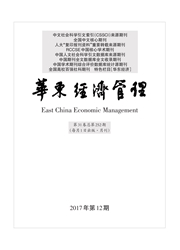

 中文摘要:
中文摘要:
文章采用2002-2011年的省级面板数据分析了中国人口年龄结构变化对住房价格的影响及其区域差异。结果发现:老龄化所导致的房价波动滞后于老龄化进程,各年龄阶段人口比例对房价均产生正向影响,但不同年龄阶段在不同区域的解释力度不尽相同。对此实证检验结果,文章认为可以从我国居民的改善性住房需求与投资渠道匮乏、人口家庭结构小型化以及城市集聚效应等方面进行解释,并以前瞻性政策加以应对。
 英文摘要:
英文摘要:
The paper makes an analysis on the impact of changes in the age structure of China's populatinn on hnusing prices and their regional differences based on the panel data at provincial-level from the year of 2002 to 2011. The resuhs show that the house price fluctuations caused by the aging lag behind the aging process, and each age group has a positive impact on housing prices, but the explanatory power of different age group varies in different regions. The results are also empirically tested. The paper believes that the results can be explained by improvement of housing needs of our residents, lack of investment channels, smaller family members and urban agglomeration effects, etc., and the forward-looking policies should he taken to deal with them.
 同期刊论文项目
同期刊论文项目
 同项目期刊论文
同项目期刊论文
 期刊信息
期刊信息
